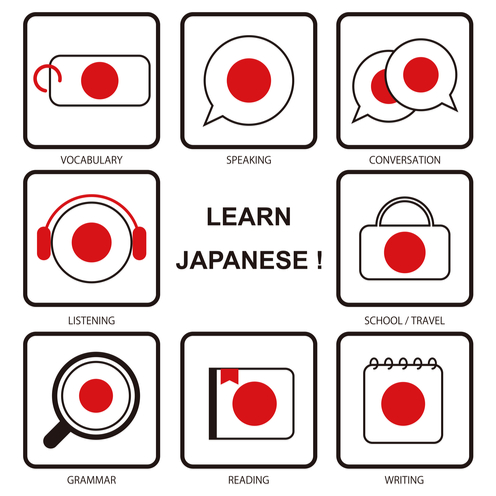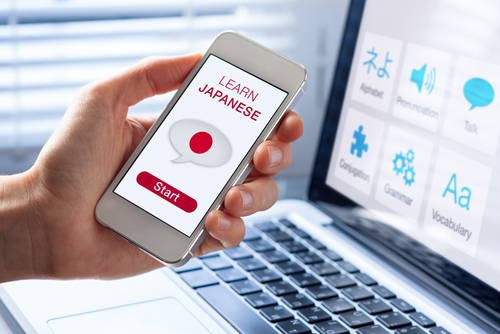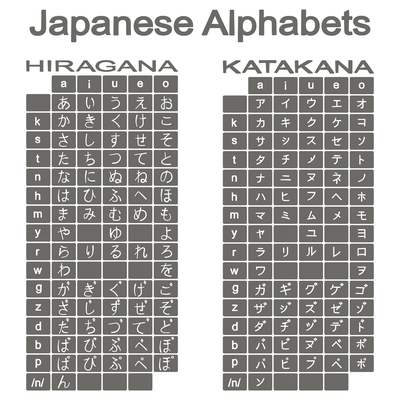Want to learn Japanese but not sure how? Here’s how should a beginner learn Japanese. Check it out!
Conquer the Land of the Rising Sun, one phrase at a time! This guide unveils effective strategies for beginner Japanese learners.
From mastering the writing systems to building vocabulary and practicing grammar, we’ll equip you for your exciting Japanese language journey.
Key Takeaways
- Understanding the basics of hiragana, katakana, and kanji is essential for learning Japanese as a beginner.
- Immersing yourself in the language through media, conversation, and practice is an effective strategy for language learning.
- Consistency and dedication are key for making progress in learning Japanese as a beginner.
Page Contents
How Should A Beginner Learn Japanese?

Start by learning the basics of the language, such as the alphabet and pronunciation. Then, learn some basic phrases and vocabulary. Once you have a basic understanding of the language, you can start to learn more complex grammar and vocabulary. It is important to practice speaking and listening to Japanese as much as possible.
There are many resources available online and in libraries that can help you learn Japanese. You can also find language exchange partners who are native Japanese speakers.
- Related: Best App For Learning Japanese
- Related: Basic Japanese Greetings To Use
- Related:Best Japanese Books to Learn for Beginners
Understanding the Basics of Japanese
As a beginner learning Japanese, it’s important to first understand the basics of the language.
In this section, I’ll cover the Japanese writing systems, basic grammar and vocabulary, pronunciation and listening skills, culture and pop culture influence, Japanese in context, and understanding romaji.
Learning Japanese Writing Systems
Japanese has three writing systems: hiragana, katakana, and kanji. Hiragana and katakana are syllabic scripts, while kanji is a set of Chinese characters used in Japanese writing.
Hiragana is used for native Japanese words, while katakana is used for foreign loanwords and emphasis.
Kanji is used for nouns, verbs, and adjectives. It’s important to learn all three writing systems to be able to read and write in Japanese.
- Basic Grammar and Vocabulary

Japanese grammar is relatively simple compared to other languages, but it still takes time to master.
The language has particles that are used to indicate the subject, object, and direction of a sentence. It’s also important to learn basic vocabulary to understand everyday conversations.
Learning the most common words and phrases will help you communicate and understand Japanese better.
- Pronunciation and Listening Skills

Japanese pronunciation is fairly straightforward, but it’s important to get it right to be understood by native speakers. It’s also important to develop listening skills to understand spoken Japanese.
Listening to Japanese music, watching Japanese movies and TV shows, and talking to native speakers can help improve your pronunciation and listening skills.
- Culture and Pop Culture Influence
Japanese culture is deeply rooted in the language, so it’s important to learn about the culture to understand the language better. Pop culture, such as anime and manga, has also had a huge influence on the language and can be a fun way to learn Japanese.
Watching Japanese movies and TV shows can also help you understand the culture and context of the language.
- Japanese in Context
Japanese sentence structure is different from English, so it’s important to learn how to put words together in the correct order.
Understanding context is also important in Japanese because the language relies heavily on context to convey meaning. Learning phrases and expressions in context can help you understand the language better.
- Understanding Romaji
Romaji is the use of the Latin alphabet to write Japanese words. It’s important to learn romaji as a beginner, but it’s not a substitute for learning the Japanese writing systems.

Romaji is often used to teach beginners how to pronounce Japanese words, but it’s important to transition to hiragana, katakana, and kanji as soon as possible to be able to read and write in Japanese.
Overall, understanding the basics of Japanese is crucial for beginners.
Learning the writing systems, basic grammar and vocabulary, pronunciation and listening skills, culture and pop culture influence, Japanese in context, and romaji will help you become proficient in the language.
Effective Strategies for Learning Japanese
- Incorporating Regular Practice
As a beginner learning Japanese, it is crucial to incorporate regular practice into your study routine. Consistency and repetition are key to remembering the new language you are trying to learn.
To achieve this, it is recommended that you create a study plan and schedule that works for you. ‘
You can set aside a specific time each day to practice Japanese, or you can break it down into smaller sessions throughout the day.
- Utilizing Learning Resources
There are various resources available to help you learn Japanese, including textbooks, flashcards, quizzes, games, apps, and online courses. It is important to find the resources that work best for you and your learning style.
Some popular resources for learning Japanese include Duolingo, Memrise, Rosetta Stone, Learn Japanese Pod, and JapanesePod101.
- Engaging in Language Exchange
Engaging in language exchange is a great way to practice your Japanese skills with native speakers. You can find language exchange partners through online communities, language exchange apps, or by attending language exchange events.
Speaking with native speakers can help you improve your pronunciation, learn common words and phrases, and gain insight into Japanese culture.
- Setting Realistic Goals
Setting realistic goals can help keep you motivated and on track with your Japanese language learning journey. It is important to set goals that are challenging but achievable.
For example, you can set a goal to learn a certain number of new words each week or to be able to hold a simple conversation in Japanese within a certain timeframe.
- Immersing Yourself in the Language
Immersing yourself in the Japanese language and culture is an effective way to improve your language skills.
This can include watching Japanese TV shows and movies with subtitles, listening to Japanese music and podcasts, and reading Japanese books and articles.
If possible, living in Japan or attending a Japanese language school can also provide an immersive experience.
By incorporating these strategies into your study routine, you can effectively learn Japanese and work towards achieving fluency in the language.
What are the best free Japanese learning apps for beginners?
As a beginner, there are many free apps available that can help you learn Japanese. Some of the best free Japanese learning apps for beginners include Duolingo, Memrise, and Lingodeer. These apps offer a variety of lessons and exercises to help you learn basic vocabulary, grammar, and sentence structure.
What are some recommended Japanese learning books for beginners?
If you prefer learning from books, there are many great options available for beginners. Some recommended Japanese learning books for beginners include “Genki: An Integrated Course in Elementary Japanese”, “Japanese from Zero!”, and “Minna no Nihongo”. These books offer a comprehensive introduction to Japanese grammar, vocabulary, and sentence structure.
What is the best way to learn Japanese online?
There are many ways to learn Japanese online, but the best way will depend on your learning style and preferences. Some recommended online resources for learning Japanese include italki, JapanesePod101, and Tofugu. These resources offer a variety of lessons, exercises, and practice opportunities to help you improve your Japanese skills.
How can I start learning Japanese on my own?
Starting to learn Japanese on your own can be a daunting task, but it is definitely possible. To get started, you should focus on learning basic vocabulary and grammar. You can use apps, books, or online resources to help you learn. It’s also important to practice speaking and listening to Japanese as much as possible.
What should I study first when learning Japanese?
When learning Japanese, it’s important to start with the basics. You should focus on learning the Japanese writing systems (Hiragana, Katakana, and Kanji) and basic vocabulary and grammar. Once you have a good foundation, you can start to focus on more advanced topics.
Is one year enough time to become proficient in Japanese?
Becoming proficient in Japanese in one year is possible, but it will require a lot of hard work and dedication. To become proficient, you will need to focus on all aspects of the language (reading, writing, speaking, and listening) and practice as much as possible. It’s also important to immerse yourself in the language as much as possible, by watching Japanese TV shows and movies, listening to Japanese music, and speaking with native speakers.





